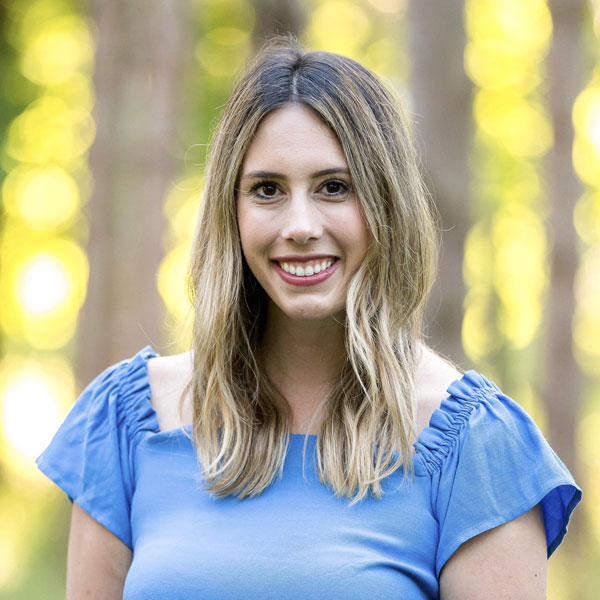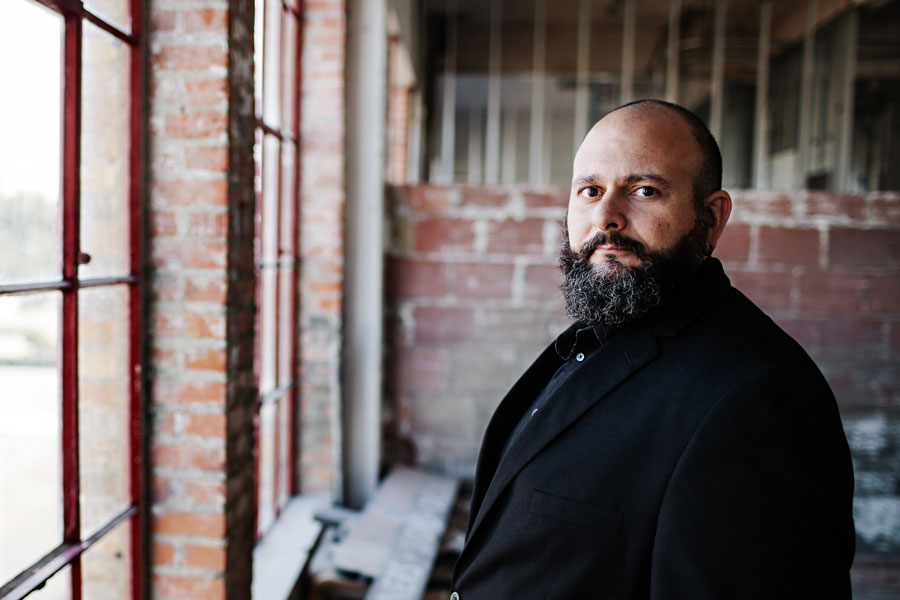Lights, Camera, Baylor
New Baylor in LA program gives students keys to Hollywood success
Gaffer. Key grip. Foley artist. Nonsensical words for most people. But sharp-eyed readers and film and TV industry buffs know they are all critical jobs on a Hollywood film set. How to land one of those coveted roles in the competitive, closed-off world of Hollywood movie-making, however, is often less clear.
The new Baylor in Los Angeles program is designed to address that challenge by providing Film and Digital Media (FDM) students with industry-specific professional development training and internship opportunities.
FDM senior lecturer Brian Elliott, B.A. ’84, M.A. ’90, was tapped to lead the Baylor in LA program due to his ties to the film industry and Baylor’s extensive alumni network there.
“It will be a life-changing experience where students will get to be around people working at the highest levels of film and television,” he says.
Elliott has three goals with Baylor in LA: Help connect students to internships and opportunities related to the fields that they want to work in; help them understand Los Angeles and the machinery of Hollywood; and help them interact with people who are already doing what they want to do — or introduce them to jobs about which they are not aware.
“It will be a life-changing experience where they’ll get to be around people working at the highest levels of film and television.”Brian Elliott, B.A. ’84, M.A. ’90
FDM chair Chris Hansen says Elliott is the ideal person to lead the Baylor in LA program.
“Brian is, to me, the quintessential Baylor alum/faculty in that he’s doing something he’s passionate about, and in a field that he’s passionate about,” Hansen says. “He connects it entirely to his passion for the people around him.”
This is not Elliott’s — or the University’s — first foray into building a program in Los Angeles. In 2006, Elliott took 10 Baylor students to the city for an entire semester. They took a full course load plus an internship, with Elliott flying back and forth from Waco to Los Angeles to teach.
At the same time, the University’s similarly styled Baylor in New York program launched under the watchful eye of FDM professor Joe Kickasola, Ph.D. As the New York program established itself as one of Baylor’s signature undergraduate experiences, development on the LA program was paused.
“Here we are, 15 years later, and finally the University has said, ‘OK, we think this is a time for us to do this,’ which we’re grateful for,” Elliott says. “Out of those 10 students, four are still in Los Angeles and have elevated to positions of stature. That goes to show that for people who go and have opportunities, they tend to do pretty well.”
Baylor Coast to Coast
The University views the two programs as complementary rather than contradictory.
“The goal is to not have students feel like it’s an either/or choice,” Elliott says. “The goal is to help students understand these things are actually trying to build on each other.”
Elliott and Hansen both say it is important for Baylor students to be in Los Angeles because that is where the bulk of film and television industry decisions are made.
“The people who want to be writers, directors, producers, agents, development executives — those people still tend to live and work in Los Angeles,” Elliott says. “You have to understand the lay of the land in terms of: What’s a studio? What’s a production company? What’s a development company? How do those things interact with each other? That’s something that we’re going to try to help educate the students in.”
The best-case scenario, Hansen says, would be for a student to participate in both programs. New York offers Broadway and the New York Film Festival and is the center for broadcast news in America. Los Angeles, on the other hand, provides other advantages.
“You’re getting the inside-industry baseball,” he says. “You’re getting studio tours and behind the scenes of major productions. They’re not the same thing, even if they have overlapping interests.”
Kickasola says New York and Los Angeles are the two power centers of influence for the media, and he believes students should want to be exposed to their differences.
“We also want them to get a strong sense of what that mission field looks like, so to speak,” Kickasola says. “Whatever their particular mission is, it has to transcend their own individual interests. And, we really strongly stress that you can’t get a full vision for that greater good until you know what the ‘greater’ part is.”
As the two programs are correlative, so, too, are the two Baylor faculty members at their respective helms. Hansen says the University is blessed to have Kickasola, who is passionate about making the Baylor in New York program a memorable and beneficial experience.
“He’s not just teaching a class and having students go to internships; he is passionate about art in all forms,” Hansen says. “He’s written books about (Polish film director Krzysztof) Kieślowski, but he also writes about art. Having somebody with that mindset is fantastic. Brian really complements that because he is passionate about the film industry. He’s also really passionate about people.”
Elliott and Kickasola both talk about the importance of one-on-one mentoring and relationship-building in their respective programs. They also agree that the programs are about more than placing students in a maximally advantageous position professionally. Students are being given an opportunity to deepen their understanding of the world to which they are called.
“We are going to give them as much guidance and strength and encouragement from a Christian perspective as to what that looks like and what we think God says about who they are and the value of what they do,” Kickasola says. “What I worry about is whether they come back (from New York or Los Angeles) with a larger vision of humanity, of their craft, of their calling, and a really strong vision of what they can do. Every time I hear that that’s true on some level, I feel like we’ve succeeded.”
Learning and Leading
Students who participated in the Baylor in New York program, or who went to Los Angeles with Elliott in the mid-2000s, say it is the guidance and mentorship of Elliott and Kickasola that really distinguishes the offerings from other internship opportunities or immersive educational experiences.
“Baylor is represented through how Brian (Elliott) conducts himself,” Jason Seagraves, B.A. ’07, says. “He’ll do whatever he needs to do to make your experience better or more enjoyable. He’s the embodiment of Baylor’s values and what (the University) represents.”
Seagraves, vice president of development for Cavalry Media, produced the films American Made, starring Tom Cruise, and Hacksaw Ridge, directed by Mel Gibson. He attributes his foundation in the industry and his connections to his participation in Baylor’s Los Angeles internship.
“Going into the Baylor in LA program, I had an idea about what elements go in to making a movie, but it wasn’t until I got there that the light bulb went off,” Seagraves says. “Before then, I didn’t know where I needed to start. I knew where I wanted to go, but not how to get there.”
Taylor Griffin, B.A. ’15, says professors like Elliott and Kickasola want to give their students a Baylor education with a Christian foundation in truly diverse places.
“You can experience all different types of backgrounds, ethnicities, and cultures (in a) very culturally dense place,” Griffin says. “It’s important to them that, while continuing that solid education, it’s done outside of that Waco bubble.”
Caly Johnson, B.A. ’14, says Elliott and Kickasola genuinely care about their students on a personal level.
“They truly care about students growing and learning as people and in their faith,” Johnson says. “Yes, they want (students) to learn about the specifics of their field and what they’re going into, but they really want you to become your own person and be confronted with things that you may not have been confronted with before in Texas.”
After graduating, Griffin landed a coveted NBC page position before taking a publicity position at Netflix. She is currently a public relations manager for Magnolia Network, helping Waco natives Chip, B.B.A. ’98, and Joanna, B.A. ’01, Gaines launch their media joint venture with Discovery Inc.
Johnson is a publicist for Amazon’s streaming services and previously was with Disney. Both Johnson and Griffin say their professional success stems from the semesters they spent in the Baylor in New York program. Griffin says it was the most important semester in her college years.
“They truly care about students growing and learning as people and in their faith.”Caly Johnson, B.A. ’14
“That experience alone, and having those connections, would have helped me out either way,” Griffin says. “I feel very blessed to have been able to go. Without it, none of that would have been a possibility.”
Hansen beams when talking about the students who have gone through the programs.
“The film industry is often a cutthroat, dog-eat-dog kind of world, but people want to be around people they like and respect. That’s why our students do well,” he says.
Gifting the Future
The Baylor in LA program is the result of more than a decade of planning and organization, and the program took a monumental step forward when Matthew B. Lindner, B.A. ’12, made a $2 million gift to the Department of Film and Digital Media in October 2021. Among other things, the Lindner Endowment for Film and Digital Media resources personnel costs, funds student and faculty travel, and provides scholarships to eligible students.
Hansen believes the latter point is fundamental to the program’s core identity, saying students who participate in the program will have been selected for their potential rather than their bottom line.
“Most internships in the film industry are limited to people who, frankly, have generational wealth and other situations that allow them to take a low-paying or no-paying internship,” Hansen says. “We want to provide access to students who wouldn’t normally be able to access a program like this.”
Lindner is a producer and investor in the independent film industry. He wanted to build on the 2015 endowment he made to establish the Department of Film and Digital Media, then housed as a program within the Department of Communications. The gift also made it possible for faculty and students to collaborate with industry professionals to create feature-length films.
“We want them to dream big, and we want to give them a pathway to at least try to make those dreams a reality.”Chris Hansen
“It is incredibly competitive and not always a meritocracy, but we want to give our students the tools that make them most likely to be successful and being out there and experiencing it with the guidance of Baylor faculty and Baylor mentors,” Hansen says. “We want them to dream big, and we want to give them a pathway to at least try to make those dreams a reality.”


